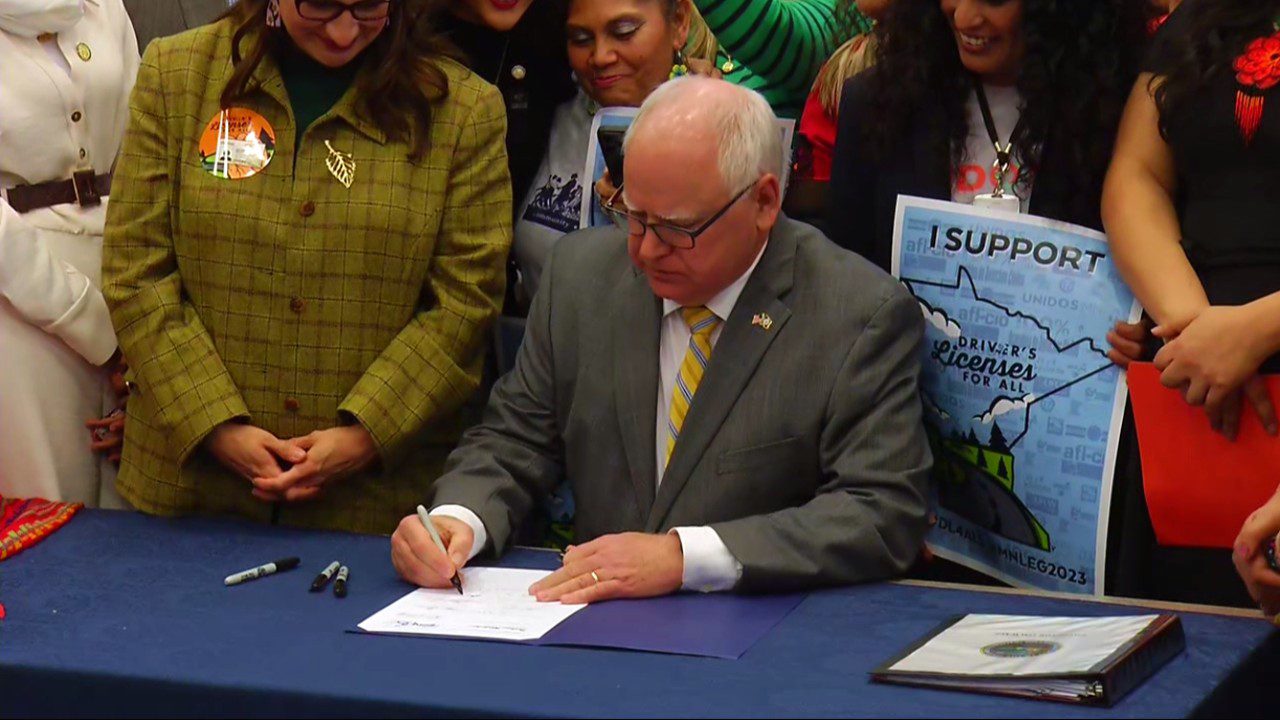‘Driver’s License for All’ takes effect this fall, appointments for written tests can be made now

Gov. Tim Walz signs a bill expanding access to driver's licenses for all Minnesotans on March 7, 2023. (KSTP-TV)
(ABC 6 News) – Members of the Minnesota Department of Public Safety (DPS) spoke Thursday about what to expect when applying for a standard driver’s license or ID as the state launches its “Driver’s License for All” initiative.
The law will allow immigrants who don’t have a permanent legal status to get a driver’s license or identification card. According to DPS, this initiative will allow 81,000 customers across the state to have expanded access to resources and services.
The Driver’s License for All initiative takes effect on Oct. 1, but those who can get a license or identification card under the initiative can now start making appointments to do so, since appointments for the written test can be made 30 days in advance of taking test.
Appointments can be made by CLICKING HERE to access the Driver and Vehicle Services division website.
In addition to English, the written test will be provided in multiple languages, including Spanish, Somali, Hmong, Russian, Vietnamese, Karen and American Sign Language.
“Driver’s License for All is an important step to increasing licensed, trained and insured drivers. It makes the roads safer for everyone while improving equity by expanding access to resources and services within the community,” said Pong Xiong, the Director of Driver and Vehicle Services.
A bill was proposed in January to allow undocumented immigrants to get licenses without showing proof of U.S. citizenship and also restrict Driver and Vehicle Services’ ability to share drivers’ immigration information. State lawmakers said Minnesotans didn’t have to show proof of legal residency in order to get a license until 2003.
The bill passed the Minnesota House by a vote of 69-60 in January and then passed the Minnesota Senate by a vote of 34-31 in February.
RELATED: Gov. Walz signs bill expanding access to driver’s licenses regardless of immigration status
Opponents argued that the bill, which was signed into law by Gov. Tim Walz in early March, creates opportunities for voter fraud, and also gives incentives for those without legal status to abuse state programs.